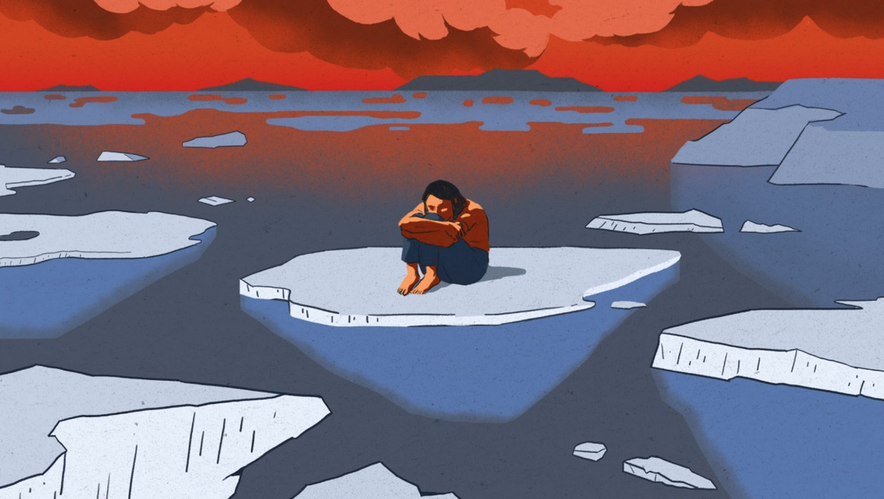CommentsVIEW FROM HERE-On September 11, Evan Dawson, host of Rochester's WXXI's “Connections” had a program on climate nihilism, and discussed author Jonathan Franzen's recent piece in the New Yorker, basically arguing that it's time to spend more effort preparing for climate catastrophe rather than trying to avoid it through small, personal acts of environmentalism.
Tuning in, I was reminded of a New Yorker cartoon. A scientist in his lab holds up a plastic straw in jubilation, "I've invented the plastic straw! It's so durable that, from now on, every man, woman, and child will only need a single straw for their lifetime!" What is it about human nature that turns a durable object into waste? (Graphic credit: Vice/Annie Zhao)
The average American's ecological footprint (the area of land required to sustain consumption and waste) is more than 25 acres -- five times more than what is sustainable globally. Stopping the worst-case scenarios when it comes to climate change, requires a dramatic reduction of personal consumption. The changes needed range from stopping mountain top removal to boiling water that makes one cup of tea instead of eight. Even turning off the TV when you leave the house makes a difference, and not throwing away food and other items that can still be used is vitally important. Collectively, these activities can have a substantial impact. Less waste. Less pollution. Lower carbon emissions. More money for everyone.
Yet, when the conversation deepens, restructuring society is inevitably discussed. What does that mean when it comes to television sets, food, and the water we use? Forget about the rising middle class in China and India -- which is a cause for nihilism in its own right -- and just look at the situation in this country. Is the majority of America ready to let corporations, governments, or some other powerful entity tell them how much electricity they can use and when? Is the majority of America okay with only having enough water to supply a simple bath and a few cycles of laundry? Are Americans ready, by and large, to relinquish the way electricity is used within their personal homes? (There are always going to be shortages and outages, but for the most part, Americans who pay for it, have the right to use electricity as freely as they like.)
What if every home is set up to maintain strict regulations on everything from bathwater and food usage to air conditioners and gas consumption?
Who will make those decisions? How will they be made? What absolutely needs to happen and is it worth curtailing civil liberties to attain it?
Whatever the plan, details matter. If there is going to be a mass conversion of people transitioning to renewables and sustainable technologies, they will need to be part of a conversation that tells the truth.
(George Cassidy Payne is an independent writer, social justice activist, and domestic violence counselor. He is a CityWatch contributor.) Prepped for CityWatch by Linda Abrams.















